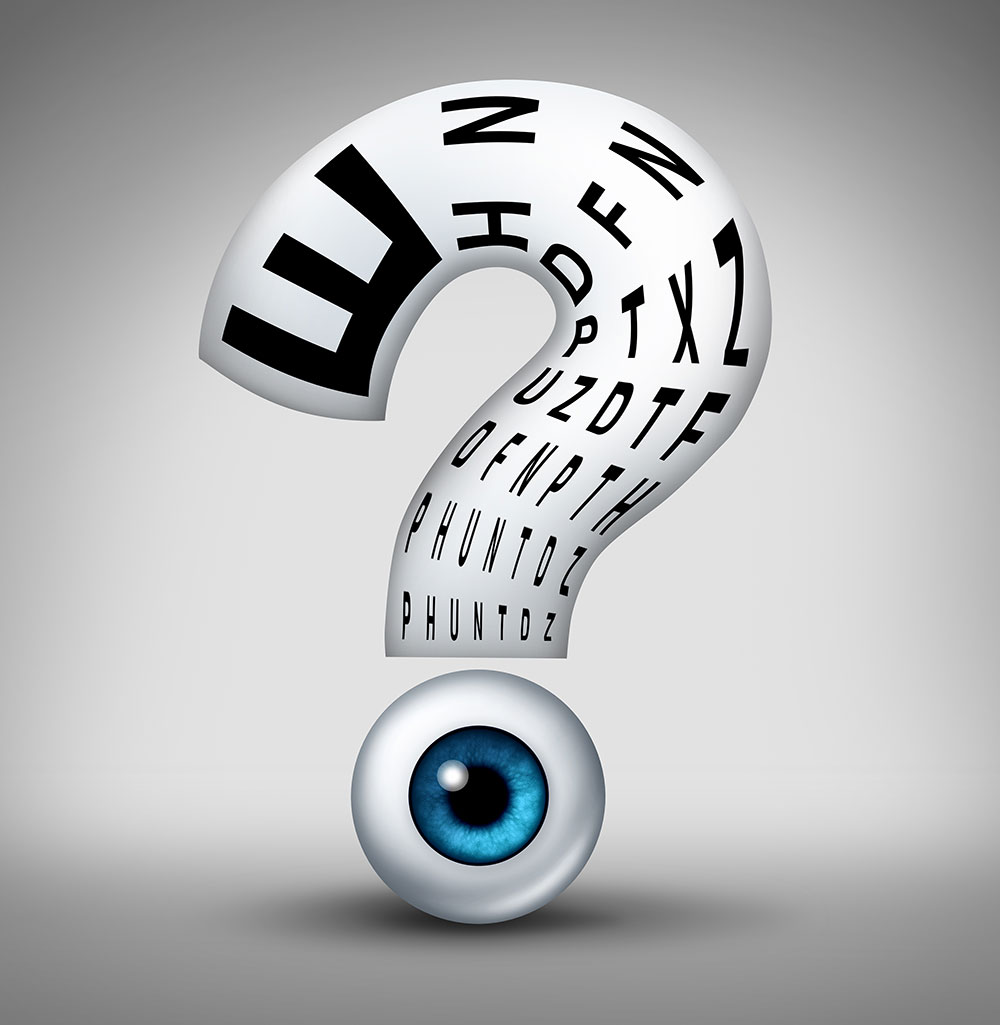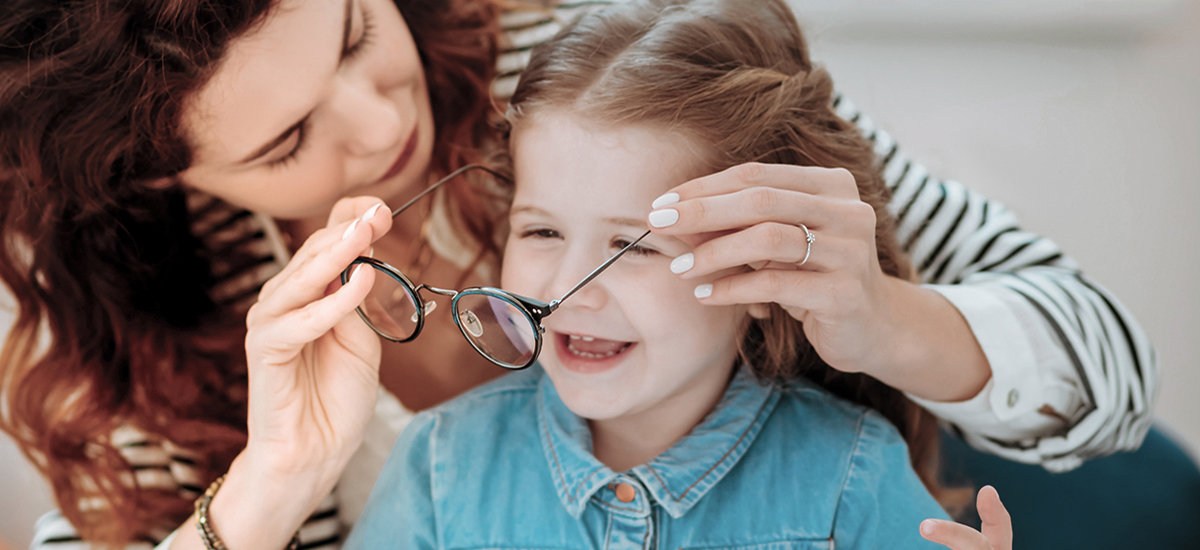3 Most Common Eye Questions and Answers

Since we started in 1972, we have heard our fair share of eye questions--and answers are easy to come by, thanks to our optometrists’ wide range of expertise. As someone who plans to schedule an eye exam soon, you will likely appreciate knowing some of the jargon surrounding eye exams (even though our eye doctors do their best to explain things).
Today, we’re going to take a close look at three of the most common eye questions to help clarify some things you might hear during your eye appointment. Let’s get started.
3 Most Common Eye Questions and Answers
During your optical exam, one of our Independent Doctors of Optometry will assess your eyes from the inside out. At this time, many things may come into the conversation, and it’s normal (and encouraged) to ask questions.
Here are some eye questions and answers to be aware of:
#1: What is a refractive error?
A refractive error is when your eyes can’t move light at the proper angle, due to an uncommon eye or corneal shape. The primary refractive errors include:
- Astigmatism: It can make images look blurry, whether they’re near or far, and it often contributes to headaches.
- Hyperopia: Also called farsightedness, hyperopia can give you excellent distance vision but trouble viewing things near your face.
- Myopia: Commonly referred to as nearsightedness, myopia provides excellent near vision but blurry eyesight at a distance.
- Presbyopia: It can make it difficult to see up close as you get older.
#2: What does visual acuity mean?
Visual acuity is your ability to see. Our eye doctors will test your eyes using eye charts 20 feet away from your face, and if you have 20/20 vision, that means you can make out the letters or numbers clearly at that distance. This indicates you have good eyesight (or visual acuity).
#3: Which eye problems can lead to blindness?
A typical eye question is whether you can prevent eye diseases and other problems. Some can be kept at bay with proper eye care. However, it’s difficult to say whether you can prevent specific eye issues.
With an annual eye exam, the eye doctor can inspect your eyes for things that can lead to vision loss. Here are the top eye diseases and issues they’ll look for:
- Age-Related Macular Degeneration: It’s the prime reason why adults ages 50 and older lose their eyesight, affecting 1.8 million people, with an additional 7.3 million who are likely to get it at some point in their life.
- Cataracts: This is a primary cause of blindness, affecting adults beyond 55 and sometimes even babies and children.
- Diabetic Retinopathy: You have a higher risk of diabetic retinopathy if you have type 1 or type 2 diabetes.
- Glaucoma: As the second most prominent reason for vision loss among Americans, it tends to affect people above age 40.
Summary: Popular Eye-Related Questions
Knowing some of the leading eye questions and answers can empower you during your conversation with the eye doctor. Patients often ask us about refractive errors, visual acuity, and eye problems that can cause blindness. However, these topics are by no means comprehensive.
The questions to ask your eye doctor can vary, depending on your eye health concerns and what you know about your vision. To prepare for your appointment, have your questions handy. That will ensure you don’t forget to ask your optometrist about anything that is concerning you about your eyes. It’ll also help you find out what comes after your eye exam.
Book your eye exam at For Eyes
Have you had your annual comprehensive eye exam? Schedule an appointment with an Independent Doctor of Optometry at your local For Eyes.












